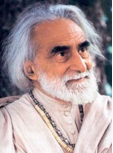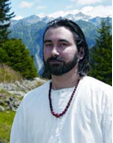What is Sufism?
Sufism is not easily defined, for it is neither a distinct religion nor a doctrine. It does not require adherence to prescribed dogmas or ritual, and welcomes members of all races, nations and beliefs. It has existed throughout the centuries in many cultures.
Sufism is a way of looking at the world and a way of living in the world. It emphasizes bringing one’s highest ideal into everyday practices. It is a way for humanity to awaken to the abundance of life, both individually and collectively, in every area of human enterprise.
What is the Inayati Order International?
The Inayati Order International evolved from the spiritual tradition of the Chishtiyya lineage which originated in India and was brought to the West by Hazrat Inayat Khan. It is currently led by Pir Zia Inayat Khan, the grandson of Hazrat Inayat Khan and son of Pir Vilayat Inayat Khan.
The Inayati Order International offers classes, seminars and retreats to all. At its heart is the Esoteric School, which provides training in a course of spiritual studies, with a dynamic process of transmission of teaching through initiation and the relationship with a personal guide for those who choose this.
There are also four other activities of the Sufi Order International which offer programs and core teachings open to all: the Healing Order, the Universal Worship, Ziraat and Kinship. See also the Sufi Order website.
Lineage
The Lineage within a Sufi order is a major conduit of the baraka (blessings) of any genuine Sufi school, and links the mureeds (initiated students) of that order with the combined spiritual power of their spiritual antecedents and with the unseen transformative forces that transpire behind the outward manifestation of the Silsila, or Chain of Transmission.

Hazrat Inayat Khan (5th July 1882 – 5th February 1927) Came to the West as a representative of the highest musical traditions of his native India, and brought with him a message of love, harmony, and beauty that was both the quintessence of Sufi teaching and a revolutionary approach to the harmonizing of Western and Eastern spirituality. His teacher, Shaykh al-Mashaykh Abu Hashim Madani, was an initiator of the four main Sufi lineages in India (Chishtiyya, Naqshbandiyya, Qadiriyya, and Suhrawardiyya) but his primary connection was with the Chisthiyya Order. Hazrat Inayat Khan was asked by his teacher to travel to the west in 1910, where he created a school of spiritual training based upon the traditional teachings of the Chishtiyya Sufis. His work was infused with a revolutionary vision of the unity of religious ideals and the awakening of humanity to the divinity within.

Pir Vilayat Inayat Khan (19th June 1916 – 17th June 2004) was the eldest son and successor of Hazrat Pir-o-Murshid Inayat Khan. He traced his spiritual lineage through a long line of Sufi pirs (masters), but his teaching was free from any religious bias, dogma or attempt to proselytize. His teaching brought the timeless contributions of the ancient Sufi mystics and poets together with the discoveries of psychology and science. For over four decades, Pir Vilayat was a beloved teacher and guide for many throughout the world, as well as an internationally known lecturer and author.

Pir Zia Inayat Khan is a scholar, author and teacher of Sufism in the lineage of his grandfather Hazrat Inayat Khan. In addition to the interfaith mystical training he received from his father, Pir Zia has studied Buddhism under the auspices of His Holiness the Dalai Lama, and Sufism in the classical Indian tradition of the Chishtiyya Order. He is the founder of Suluk Academy,a school of contemplative study with branches in the U.S. and Europe, as well as of Seven Pillars House of Wisdom, a multi-dimensional community devoted to cultivating a living wisdom which combines programs in the areas of mysticism, revelation, cosmology and chivalry.

